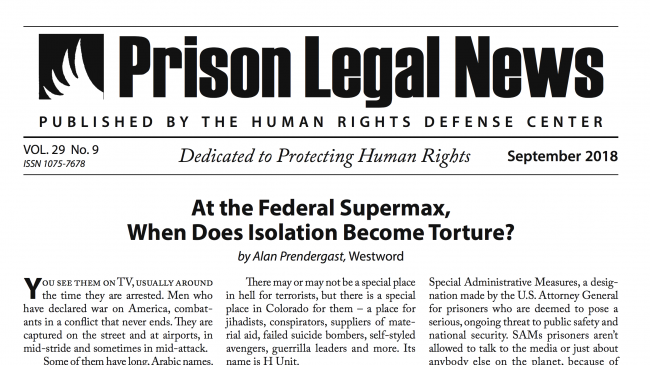In the Supreme Court of the United States
Prison Legal News, Petitioner, v. Secretary, Florida Department of Corrections, Respondent.
On Petition for Writ of Certiorari to the United States Court of Appeals for the Eleventh Circuit
Brief Amici Curiae of R Street Institute, Americans for Prosperity, the Cato Institute, Reason Foundation, and the Rutherford Institute In Support of Petitioner
This Court has noted that because “most offenders will eventually return to society,” one of the “paramount objective[s] of the corrections system is the rehabilitation of those committed to its custody.” McKune v. Lile, 536 U.S. 24, 36 (2002) (quoting Pell v. Procunier, 417 U.S. 817, 823 (1974)). There are a number of steps that prisons can take to facilitate rehabilitation, such as offering substance abuse treatment, education programs, and chaplaincy services. But it is also vitally important that government “leave things alone when that is the best course of action.” Milton Friedman, An Economist’s Protest 6 (1975); see also Michel Foucault, Discipline and Punish: The Birth of the Prison 265–66 (Alan Sheridan trans.) (1975) (observing that “[d]etention causes recidivism” when it “impos[es] violent constraints” on prisoners through “[t]he arbitrary power of administration”).
Left to their own devices, there are prisoners for whom “the cell is an ideal place to learn to know [themselves], to search realistically and regularly the process of [their] own mind and feelings.” Nelson Mandela, Conversations With Myself 211 (2010). Even prisoners who would benefit from formal programming must be allowed to retain some measure of personal freedom and independence if they are to remain engaged and connected with society before returning to productive citizenship upon release.
Consider, for example, those prisoners who choose to subscribe to Prison Legal News, a monthly publication that provides “public education, advocacy, and outreach,” and includes information “educating [prisoners] about their civil rights under the law.” Pet. 4. At no cost to taxpayers, these prisoners are provided access to “writings from legal scholars, attorneys, inmates, and news wire services” regarding “news and legal developments related to the criminal justice system,” which helps educate them on “how to advocate for their rights.” Pet. App. 49, 55–56. By helping its subscribers “confront[] injustice and focus[] on problem-solving,” Prison Legal News “assist[s] in forging a sense of community around the law, learning, and social action.” See Jessica Feierman, “The Power of the Pen”: Jailhouse Lawyers, Literacy, and Civic Engagement, 41 Harv. C.R.-C.L. L. Rev. 369, 387 (2006).
Ignoring the obvious benefits of allowing those within their custody to read and reflect on the materials presented in Prison Legal News, Florida officials imposed a de facto ban on the publication— which, not coincidentally, has printed “dozens of reports exposing corruption and abuses in Florida’s penal system,” Pet. 5—after concluding that certain disfavored advertisements were so “prominent or prevalent” as to endanger “prison security.” They offered no evidence to support that conclusion, instead applying what the District Court aptly described as a “know it when [they] see it” standard. Pet. App. 95 (alteration in original). The Eleventh Circuit nevertheless upheld Florida’s ban on Prison Legal News, affording near-unlimited deference to prison officials acting “as if unconstrained by judicial review in matters affecting the speech of those in their custody.” See David M. Shapiro, Lenient in Theory, Dumb in Fact: Prison, Speech, and Scrutiny, 84 Geo. Wash. L. Rev. 972, 975 (2016).Although “the professional judgment of prison administrators” must be given some measure of deference, Overton v. Bazzetta, 539 U.S. 126, 132 (2003), the Constitution requires careful judicial scrutiny of government action that threatens to extinguish First Amendment rights. Imprisonment necessarily requires some curtailment of individual liberty. Indeed, there are many prison rules and regulations that “impinge[] on inmates’ constitutional rights” yet are nevertheless “reasonably related to legitimate penological interests.” Turner v. Safley, 482 U.S. 78, 89 (1987). But Florida’s censorship of Prison Legal News is not one of them. Instead, it amounts to an impermissible effort to imprison not only the body but also the mind. This Court should grant the petition.
Amicus Brief: Prison Legal News v. Secretary, Florida Department of Corrections
